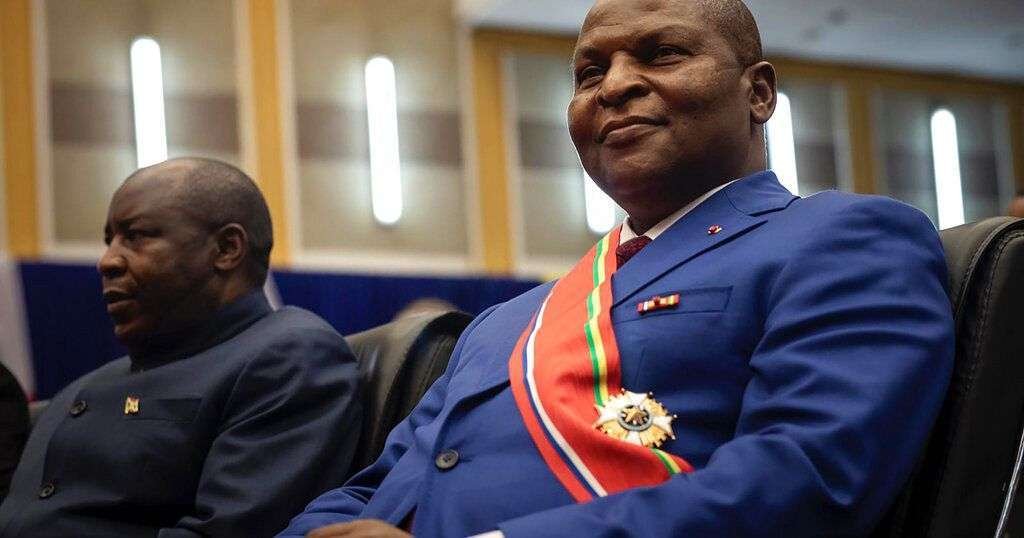Bangui, Central African Republic – (African Boulevard News) – Under the very close guard of Russian mercenaries and Rwandan peacekeepers, the president of the Central African Republic, Faustin Archange Touadéra, is clearly enjoying waving to the crowds in what could be described as a display of power. But is Touadéra truly a “man of peace” as he claims, or is he better known as “President Wagner”?
Since his election in 2016, Touadéra has faced numerous challenges in his attempt to bring stability and peace to the war-torn country. One of his major accomplishments was the signing of a peace agreement in 2019, which aimed to end the deadly conflict between government forces and armed groups. The agreement, however, has been criticized by many as being ineffective and failing to address the root causes of the conflict.
Touadéra’s reliance on Russian mercenaries from the Wagner Group has raised eyebrows and further fueled the controversy surrounding his presidency. The Wagner Group, a Russian private military company, has been accused of human rights abuses and supporting authoritarian regimes around the world. Some critics argue that Touadéra’s relationship with the Wagner Group undermines his claims of being a “man of peace.”
“President Wagner” is a term coined by Touadéra’s opponents to highlight the influence of the Wagner Group on his presidency. They argue that Touadéra is merely a puppet of the Russian mercenaries, who are using their military power to secure their economic and geopolitical interests in the country. This has led to concerns over the lack of transparency and accountability in Touadéra’s government.
However, Touadéra’s supporters argue that his alliance with the Wagner Group is necessary to combat the armed groups that have plagued the Central African Republic for years. They claim that without the support of the Russian mercenaries and Rwandan peacekeepers, Touadéra’s government would not be able to maintain control over the country and protect its citizens. They also highlight the progress made in areas such as infrastructure development and economic growth under Touadéra’s leadership.
Despite the polarizing opinions surrounding Touadéra’s presidency, it is clear that the Central African Republic is still facing significant challenges on its path to peace and stability. The country continues to suffer from ethnic and religious tensions, widespread violence, and the displacement of thousands of people.
The international community, including the United Nations, has a crucial role to play in supporting the Central African Republic in its quest for peace. It is essential to ensure that any assistance provided is transparent, accountable, and focused on addressing the root causes of the conflict.
As the Central African Republic grapples with the complexities of its political landscape, the question of whether Faustin Archange Touadéra is a “man of peace” or “President Wagner” remains unanswered. Only time will tell if his presidency will bring lasting peace and prosperity to the country or deepen its divisions.

